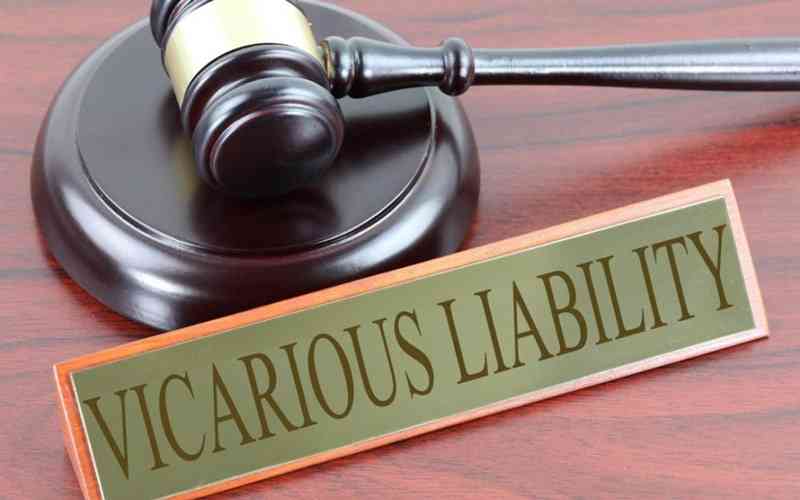
Legal entities in Zimbabwe may have to grapple with the legal risk associated with vicarious liability.
This is liability that arises from a wrong that is committed by actions of an entity’s employees during execution of duties associated with their employment.
The same liability also appears to apply with respect to a company’s dependent agents.
The principle behind holding a company liable for an employee or dependent agent’s wrongs to third parties arise from the legal nature of companies and other legal persona.
In the eyes of our law in Zimbabwe, a company is a person with powers to execute juristic acts in the furtherance of its objectives as outlined in its memorandum and articles of association.
A legal persona is an entity that has rights under the law to legally sue or be sued in its own name.
At law a legal persona is either the natural person — an individual or the artificial person recognized at law having legal rights and duties/legal obligations.
In its simplest form an artificial or juristic person speaks to entities that are recognised at law as having capacity to sue and being sued it their own names.
- Mavhunga puts DeMbare into Chibuku quarterfinals
- Bulls to charge into Zimbabwe gold stocks
- Ndiraya concerned as goals dry up
- Letters: How solar power is transforming African farms
Keep Reading
In the Supreme Court case of Zimbabwe Bata Shoe Company v Zimbabwe Bata Shoe Company Workers’ Union, the court noted that the court proceedings were void because the workers committee was not a legal persona, therefore, could not be sued in its own name.
The concept of legal personality is thus important in our law.
It appears that the law recognizes the fact that juristic persons, being not real persons, would require the agency of natural persons in order to accomplish their objectives.
The activities and actions of these persons, predominantly employees may cause harm or loss to third parties.
Thus the concept of vicarious liability arises from the fact that juristic persons act through the agency of their employees who are natural persons – the law attributes the wrong doing of employees of an entity to the entity itself as long as the wrong is committed in the course of the employee’s employment.
In one of the cases in which an individual was wrongly arrested and detained overnight by the police, the accused after being released sued the police officers who arrested him without a warrant.
He further sued the Zimbabwe Republic police for what he considered a case of wrongful arrest by the police officers being the employees of the Zimbabwe Republic police.
In handing down judgment, the High Court reiterated that vicarious liability was part of our law, and that employers ought to be wary of the actions of their employees in the course of execution of their employment duties.
The court reiterated our common law position that a servant can be sued at the same time as his master in the same action for some wrong that he committed during the course and scope of his employment.
The High Court also pointed out that the servant’s wrongful actions cannot be imputed to the master if the actions did not take place during the course of employment.
If the defendants acted in their personal capacities, for example when off duty, then they were not acting in the course and scope of their employment.
Corporates and other legal entities can take some measures to minimise the risk arising from vicarious liability.
One of the most important action is to ensure that employees are properly inducted on their jobs.
Job induction is paramount as it speaks to the duties and responsibilities of the employee and how they may be lawfully executed by the employee.
In the bulk of cases where employers have been caught off guard in this area, it was a result of poor induction procedures resulting in the employee not appreciating what the job really entails, the dos and don’ts for the particular assignment.
The same goes with training, development and supervision of employees.
Employees should constantly be trained off or on the job so that with the changing demands of the job or changes in the work environment, the employee is sufficiently equipped to execute tasks within their job responsibilities.
Employers should always train and remind employees on job policies, code of conduct and acceptable standards of behaviour in the course of employment. This and other reasonable interventions will assist employers in curtailing the lurking risk of vicarious liability.
Disclaimer
This article is not meant to be legal advice nor is it meant to be exhaustive of the subject under discussion. Should you require specific legal counsel on related matter, you may contact the author or consult an attorney. Majachani is a partner at Alex F and Associates, Attorney – he can be contacted on alexf.attorneys@gmail.com










